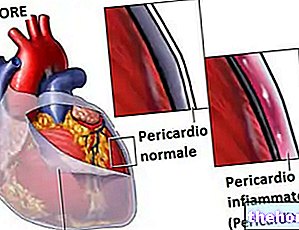Meaning of exogenous
The adjective exogenous, in the field of biology and medicine, is attributed to any factor or substance, biological or not, which has origins external to the organism considered. A hormone, such as testosterone, can be produced by the same organism or administered by intramuscular injection; in the latter case, exogenous testosterone will be found, while the hormonal share produced by the same organism will be awarded the adjective "endogenous". Similarly, a disease is often due to the sum of endogenous factors, due to a more or less marked genetic susceptibility, and to exogenous (environmental) factors that favor its appearance. Furthermore, on the antioxidant front we have endogenous substances, therefore produced by our body, (such as glutathione, catalase and superoxide dismutase) and exogenous antioxidant substances (vitamins A, C and E, lipoic acid, lycopene, coenzyme Q10 ...) taken with food, drugs or supplements.
Meaning of endogenous
The "endogenous adjective, in the field of biology and medicine, is attributed to any factor or biological substance generated directly by the considered organism." A disease, such as Down syndrome or thalassemia, may be due to endogenous factors, such as congenital malformations of one or more organs, or hereditary genetic abnormalities.However, most pathological processes are linked to the sum of endogenous and exogenous factors; this is especially true for the very widespread "diseases of well-being" (diabetes, atherosclerosis and related diseases, myocardial infarction, osteoporosis, stroke, various types of cancer and metabolic syndrome) whose genesis contributes significantly to exogenous factors such as stress, overeating , obesity, environmental pollution, occupational exposure to toxic or mutagenic substances, alcohol, smoking and drug abuse, and a sedentary lifestyle.





-a-cosa-serve.jpg)






















